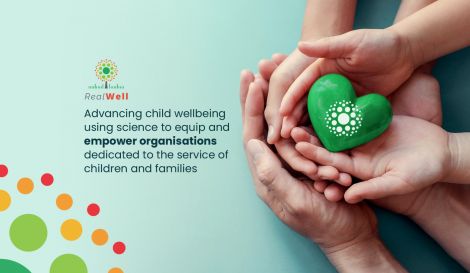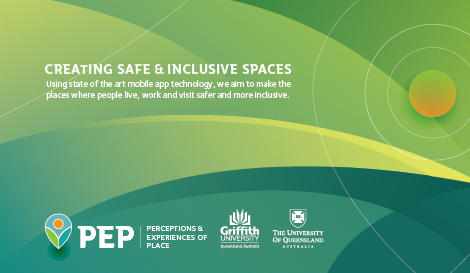Sustainable Development Goals
The Griffith Criminology Institute is aligned with the United Nation's Sustainable Development Goals (SDGs), and committed to tackling global challenges around peace, justice and strong institutions and partnerships for goals.
Research generates new knowledge, while research translation applies that knowledge for better policy and practice outcomes and broader community benefits. Our research translation activities involve working with key partners to synthesise knowledge, identify opportunities for policy and practice innovation, and evaluate outcomes. To achieve this we work closely with key policy and practice experts from government, non-government and community organisations. Current major research translation initiatives include the following:

Centre for Investigative Interviewing
Professor Martine Powell joined the Griffith Criminology Institute in 2018, bringing with her the Centre for Investigative Interviewing. Investigative interviewing is the process of eliciting an accurate, detailed and coherent account of an event or situation in a manner that minimises unnecessary stress or discomfort of the interviewee and assists professional decision-making. The Centre supports one of the largest groups of investigative interviewing researchers in the world. It also provides unique training that can be adapted to any jurisdiction, and across an array of professions. The focus is to bring world-class resources to the industry doorstep, and generate research and resources that develop interviewer competency, leading to improved justice systems and fairer case outcomes.

Griffith Youth Forensic Service
The Griffith Youth Forensic Service aims to prevent youth sexual violence and abuse through state-of-the-art knowledge and the delivery of best-practice interventions, building capacity across communities to understand, prevent and respond to violence and abuse. Our vision at Griffith Youth Forensic Service is to bring together a team of practitioners and researchers in a sustained collaboration focused on understanding and preventing youth sexual violence and abuse. GYFS operates a field-based multisystemic, collaborative practice model, designed to enable equitable access to high-quality services regardless of location. Clinicians travel throughout Queensland, including to regional and remote locations, to conduct assessments and to deliver treatment in collaboration with local community partners.

Queensland Cross-sector Research Collaboration
The Queensland Cross-sector Research Collaboration (QCRC) is a partnership with Queensland government departments and agencies to promote ongoing use and oversight of the 1983, 1984 and 1990 longitudinal cohorts. Spearheaded by the late Professor Anna Stewart, this rich dataset includes data from 13 agencies linked by the Queensland Government Statisticians Office (QGSO) and Queensland Health, including child protection, mental health, trauma, youth and adult offending, domestic violence protection orders, and births, deaths & marriages. This rich dataset provides opportunities for addressing many interesting and complex research questions.

RealWell
RealWell is a not-for-profit initiative of Griffith University that draws on scientific research and practical innovation.
Our Vision is to advance child wellbeing using science to equip and enable those dedicated to the service of children and families. RealWell aims to support school and community-wide efforts to take positive action, based on evidence, to promote the wellbeing of children and their families. RealWell makes available simple and practical tools to cultivate community-wide understanding and advancement of children’s social and emotional development.

Social Analytics Lab
The Social Analytics Lab (SAL) is a custom-built, secure research facility housed at Griffith University to store, manage and analyse sensitive administrative data for research and teaching. Underpinned by industry standard security protocols that enable the storage of individual level data, SAL offers a unique platform where cutting edge academic research can be applied to the complex real world problems of a rapidly evolving 21st-century society.

Transforming Corrections to Transform Lives
Transforming corrections to transform lives is an innovative collaboration working to transform the lives of mothers in custody and their children. Our pioneering project has the principles of co-creation at its core. Our vision is to co-create a new method of service provision for imprisoned mothers and their children that creates conditions for families to thrive through a holistic system of practice that supports wellbeing and social inclusion, and demonstrates more effective, sustainable service provision that can be scaled up by governments

Perceptions and Experiences of Place
The Perceptions and Experiences of Place study is a collaboration between Griffith University and the University of Queensland and involves researchers from Monash University and the Ohio State University. The study aims to develop innovative strategies for improving safety in communities, workplaces, and other places that people visit. Data will be collected using a bespoke smartphone application that passively collects location data and delivers short surveys asking participants about their perceptions of places and spaces they frequent. The research findings will be of significant benefit in the creation of place based initiatives to make places safer and more inclusive for everyone.

Call for Unpublished Evaluation Reports
The Griffith Criminology Institute (GCI), in collaboration with the NSW Department of Communities and Justice, is undertaking a review of Australian evidence relating to the effectiveness of interventions with and responses to men who use Domestic and Family Violence (DFV). The objective of the review is to consolidate ‘what works’ for different perpetrator types, across different program modalities and in the context of different environmental and social conditions, including published and unpublished evidence.